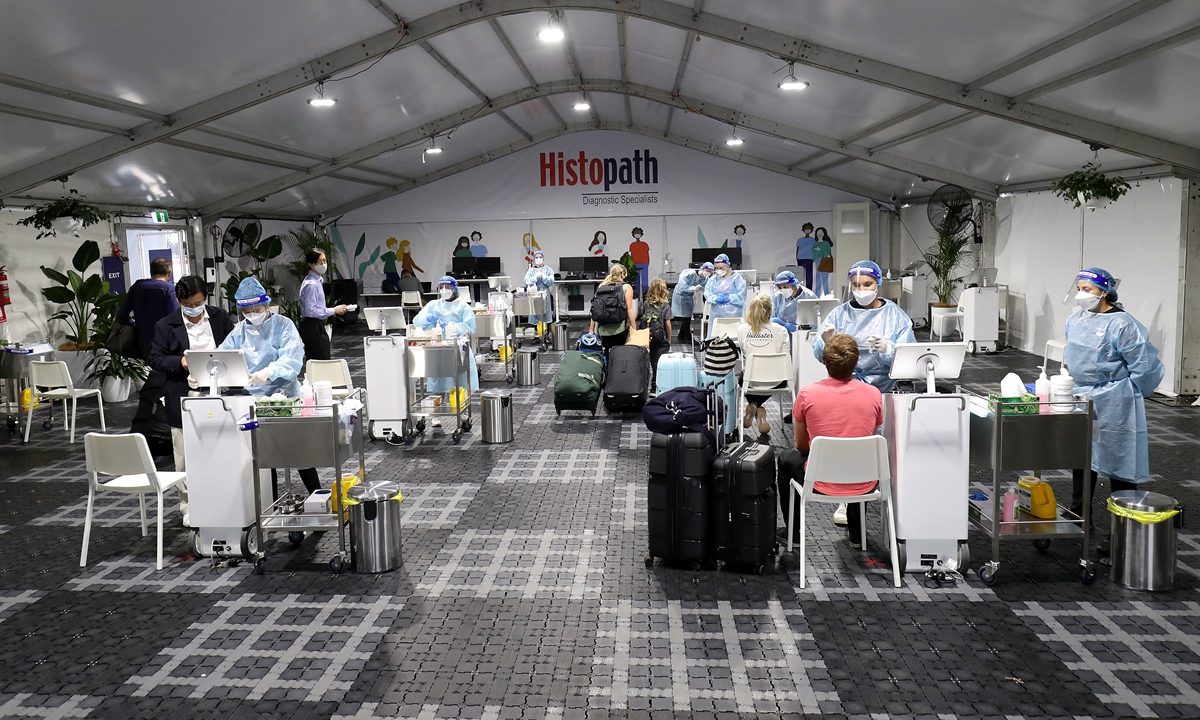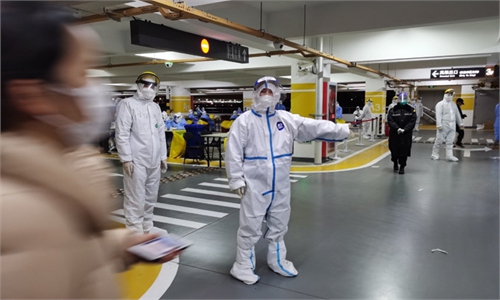Omicron in unprecedented spread: WHO
Countries urged to guard against thinking it is a ‘mild disease’ and act

Travelers receive COVID-19 tests ahead of their flights at a Histopath testing clinic at Sydney Airport in Sydney, Australia on December 7, 2021. The Omicron variant of COVID-19, first identified in southern Africa, has now been detected in countries from the US to Australia, underscoring the difficulties of curtailing contagious new strains. Photo: VCG
The World Health Organization warned Tuesday Omicron was spreading at an unprecedented rate and urged countries to act, as drug maker Pfizer said its coronavirus pill was effective against the variant.Dutch primary schools will close early as Europe battles a fresh wave of infections and hospital admissions, while British Prime Minister Boris Johnson faced a major parliamentary test seeking to impose fresh COVID-19 curbs.
Omicron, first detected by South Africa and reported to the WHO on November 24, has a large number of mutations, setting alarm bells ringing since its discovery.
Early data suggests it can be resistant to vaccines and is more transmissible than the Delta variant, which was first identified in India and accounts for the bulk of the world's coronavirus cases.
WHO chief Tedros Adhanom Ghebreyesus told reporters the strain had been reported in 77 countries and "probably" spread to most nations undetected "at a rate we have not seen with any previous variant."
Omicron now accounts for around 3 percent of cases in the US, a figure that is expected to rise rapidly as has been seen in other countries. The US is the nation hit hardest by the pandemic, and it crossed 800,000 known COVID-19 deaths on Tuesday, according to a Johns Hopkins University tracker.
Although Britain Monday confirmed what is thought to be the world's first Omicron death, there is no proof yet that the variant causes more severe illness.
The WHO on Tuesday provided room for cautious optimism saying Africa had recorded a massive rise in cases over the past week but a lower number of deaths compared with previous waves.
But it urged countries to act swiftly to rein in transmission, protect their health systems and guard against complacency.
WHO expert Bruce Aylward strenuously warned against "jumping to a conclusion that this is a mild disease."
"We could be setting ourselves up for a very dangerous situation."
The warning came as Pfizer on Tuesday said clinical trials of its COVID-19 pill reduced hospital admissions and deaths among at-risk people by almost 90 percent.
The American drug maker said its new treatment, Paxlovid, held up against Omicron in lab testing.
Chief executive Albert Bourla called the news a "game changer" and said he expected approval from the US medicines regulator as early as December.
A study from South Africa has showed two doses of the Pfizer-BioNTech vaccine was 70 percent effective in stopping severe illness from Omicron.
AFP



